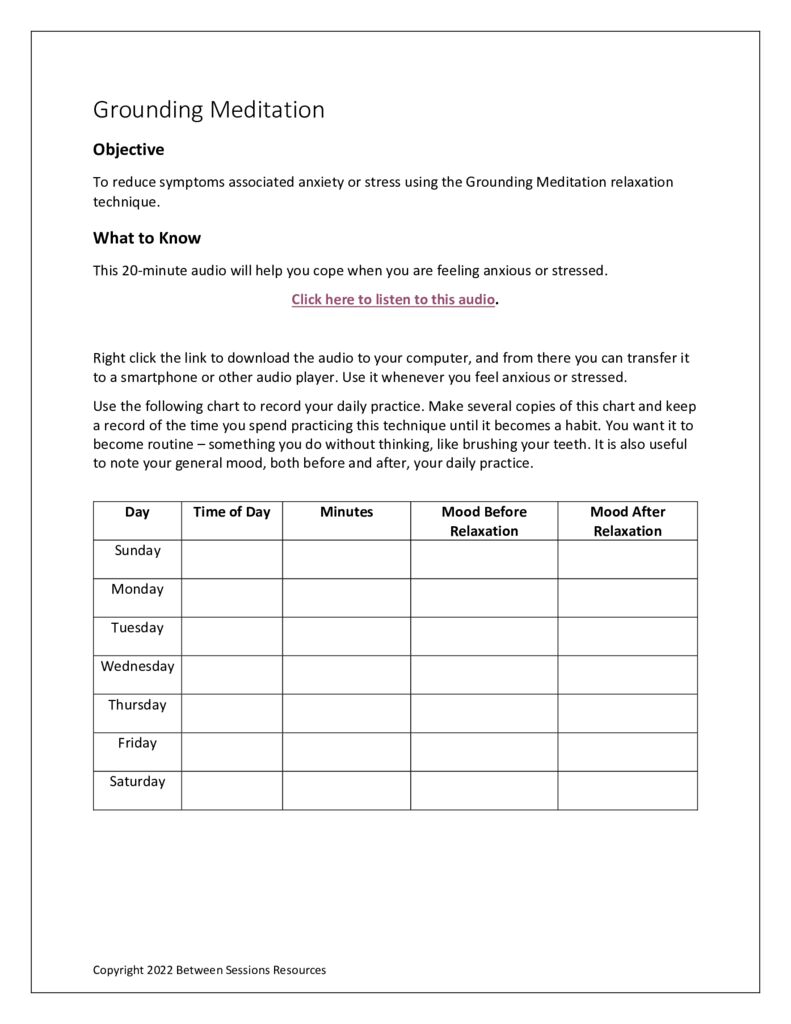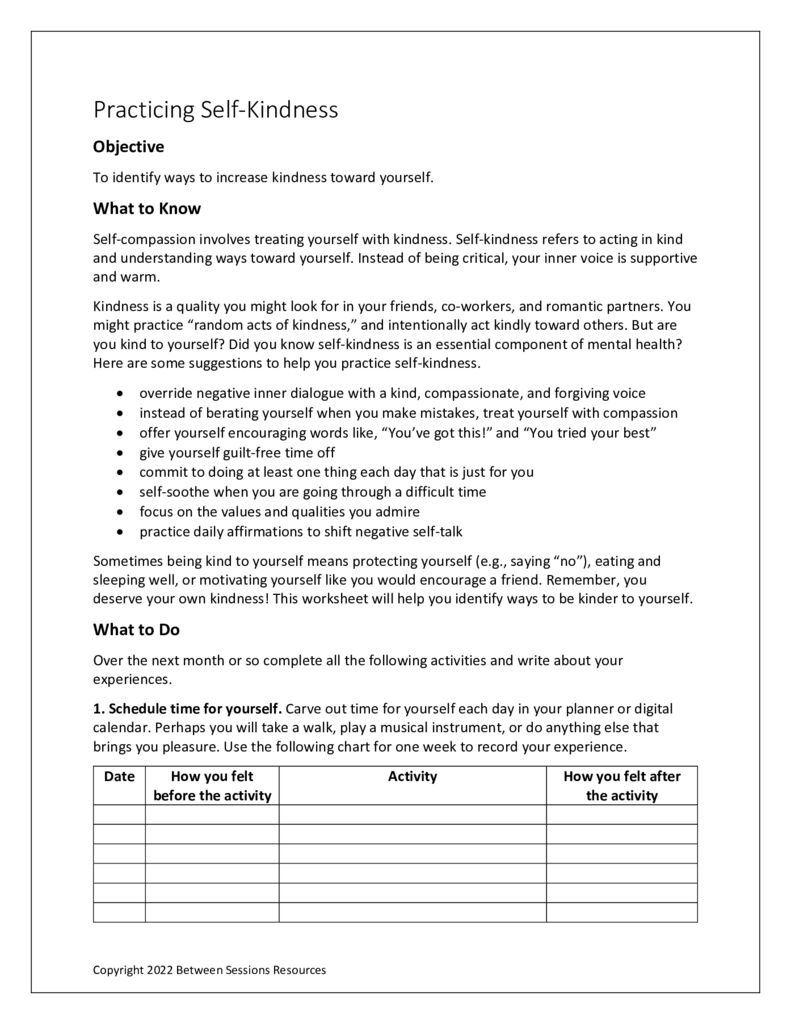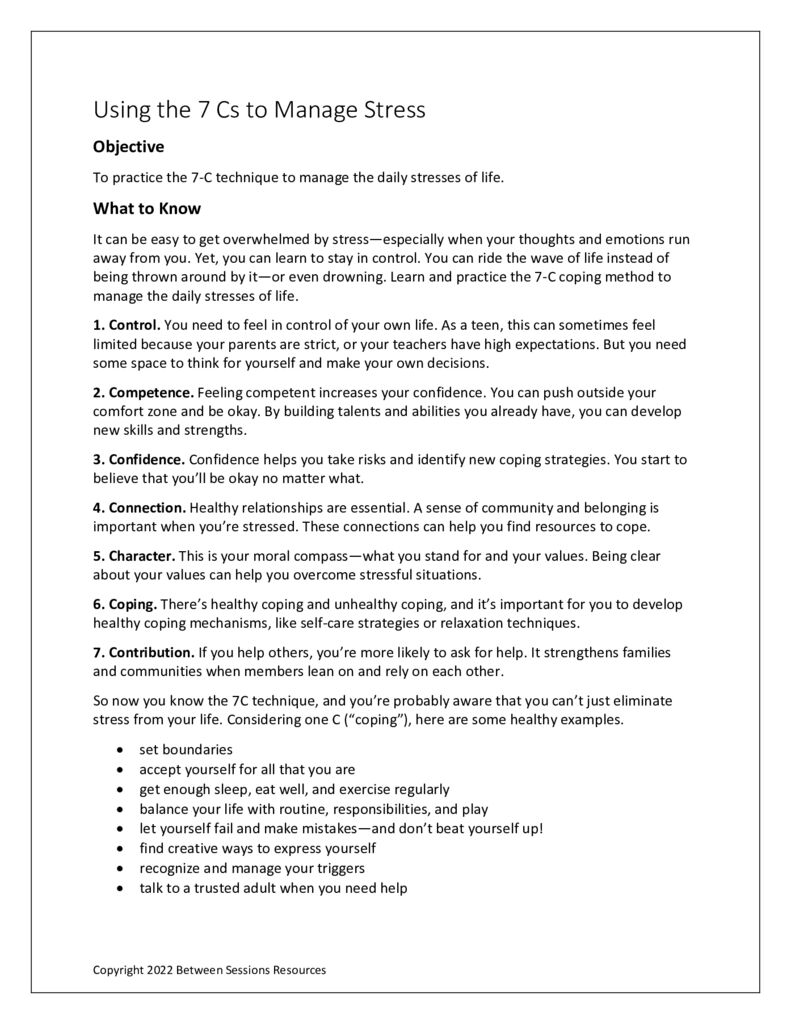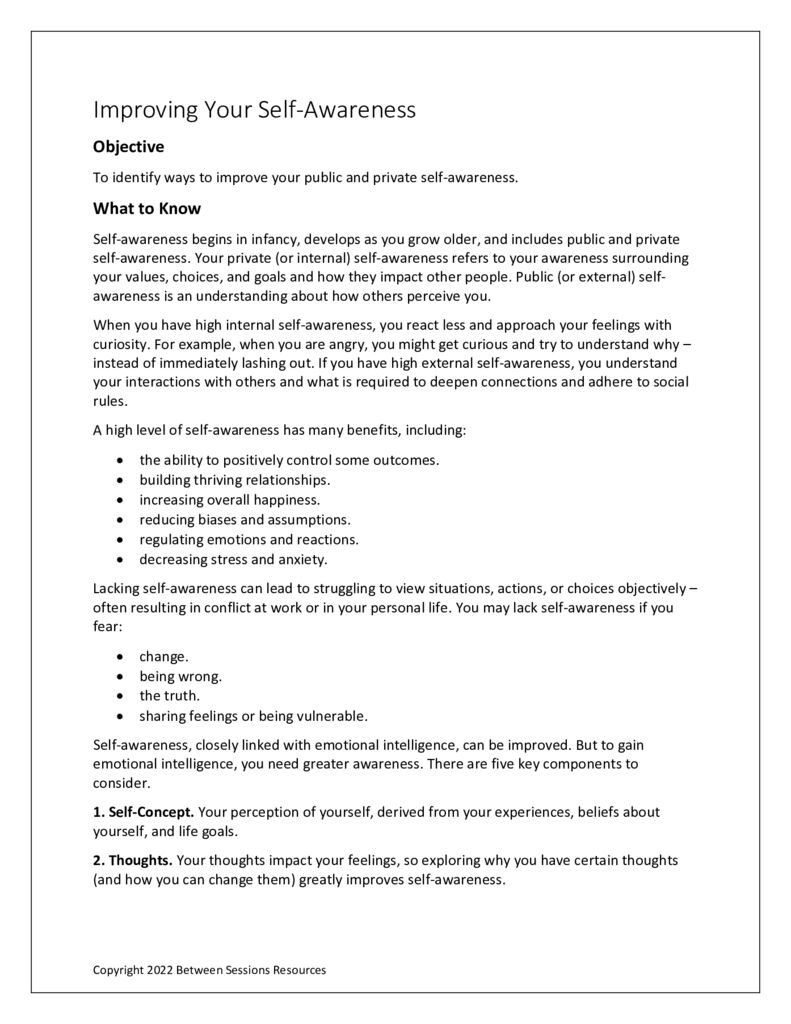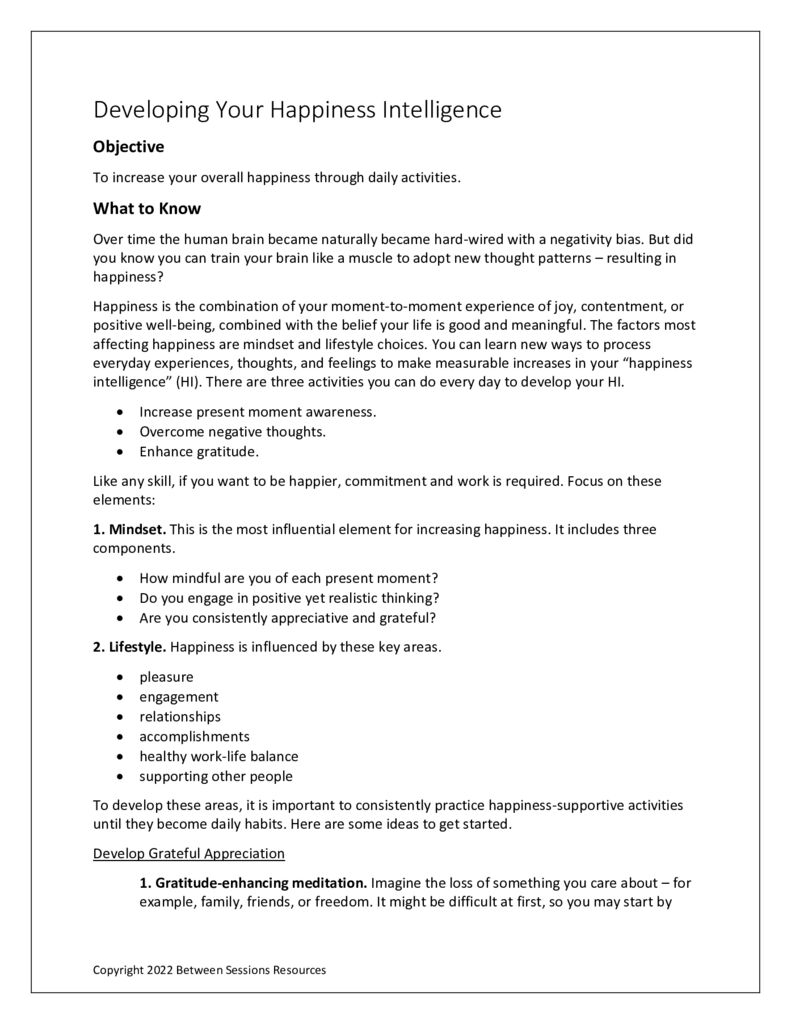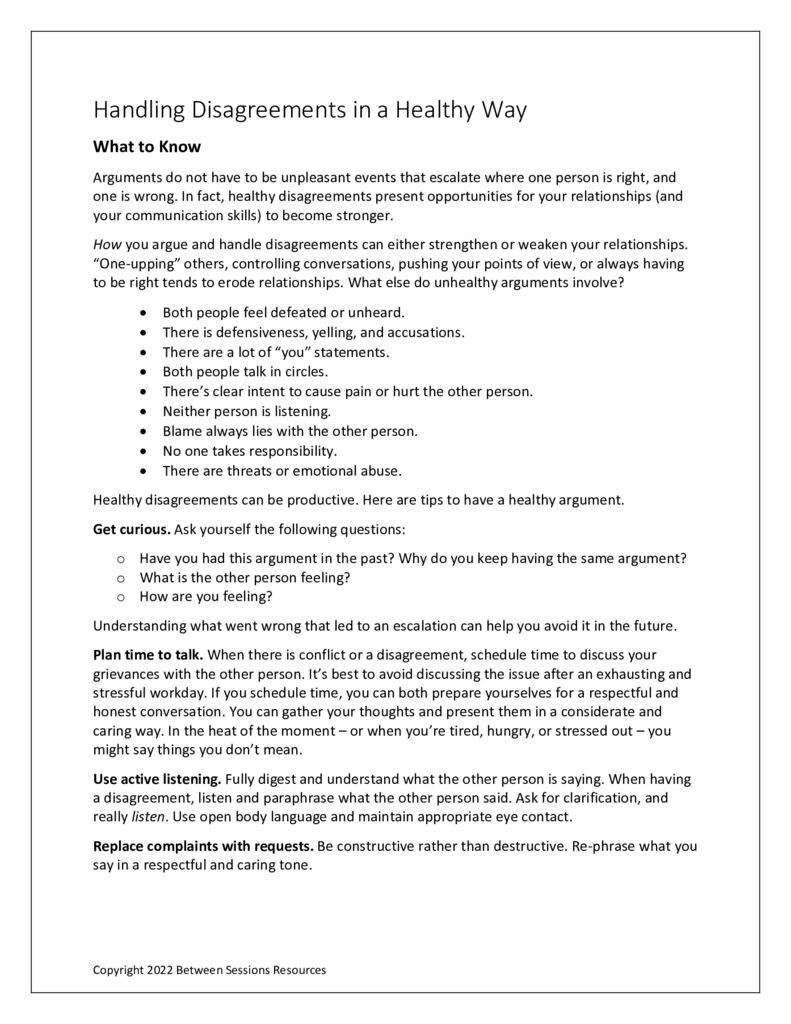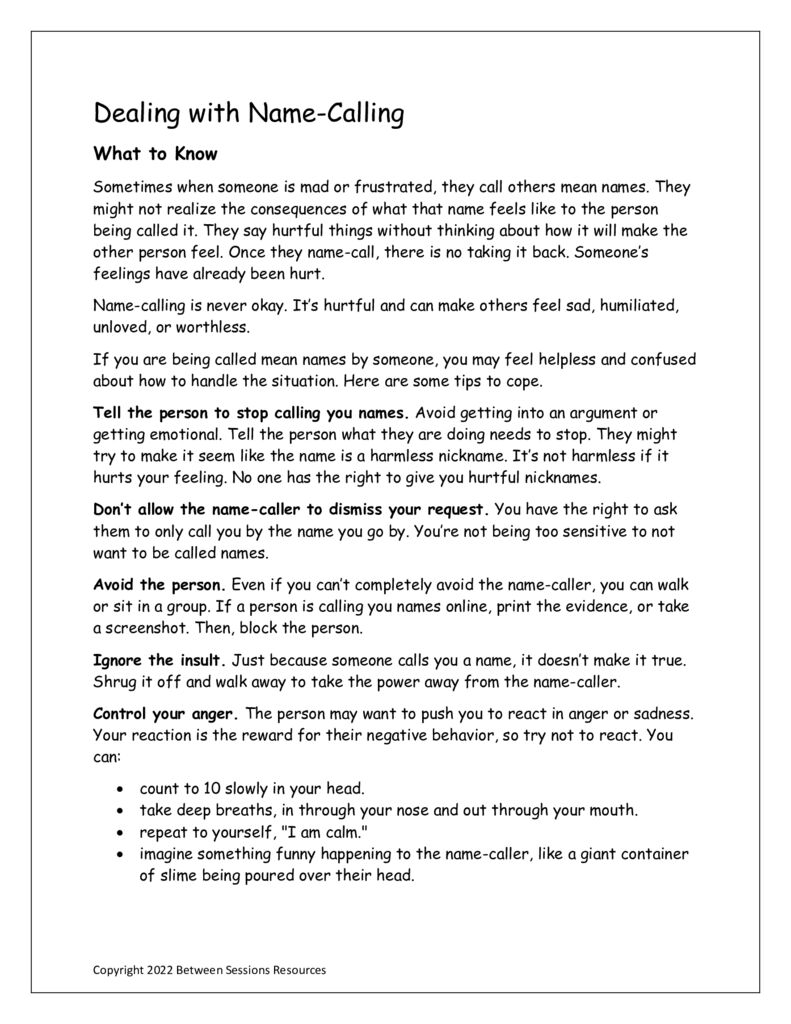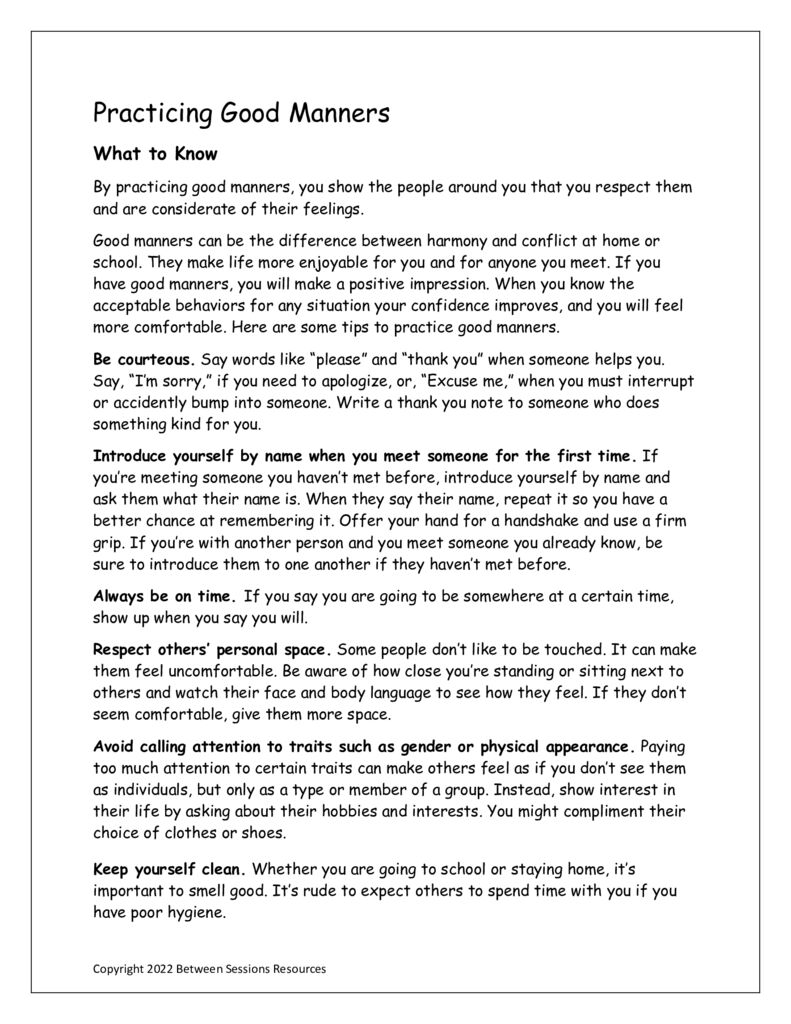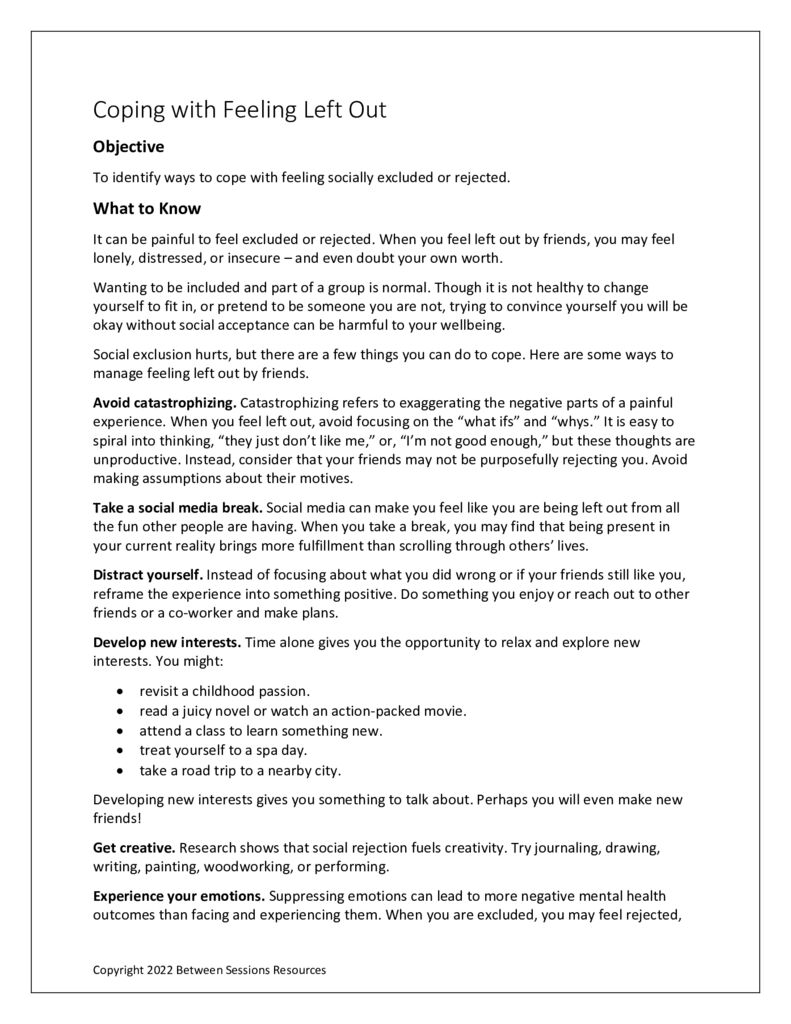Teens have a special way of communicating and learning about themselves, so we’ve made sure that all our therapeutic activities for teens are appealing and engaging to this age group.
To modify the tools, click the ‘Send to Client’ button by each tool to open the Psychology Forms Filler. You can then edit the tool as you see fit and either print it out or send it to a client to be filled out online. Click here for a tutorial on using the Psychology Forms Filler.
We’ve tried to address every teen issue we can think of, and more tools are added every week!
If you are looking for something you can’t find on this site, please let us know by clicking here and our team of writers, graphic artists, and therapists will custom-design it for you.
This audio recorded by Dartmouth College Health Service can be used by people who feel overwhelmed by their emotions. It is just over 20 minutes long. (0822, audio, grounding, bipolar disorder, emotional regulation)
This worksheet encourages people to increase their kindness to themselves. It gives 14 suggestions on how to increase self-compassion. (0822, self-care, self-compassion)
This worksheet describes 7 ways to manage stress. It asks teens to make a mini-poster showing how they might use each coping technique. (0822, coping, emotional regulation, stress)
This worksheet is designed to help people increase their self-awareness which can help in emotional regulation and in social interactions. A chart is provided to help people keep track of their thoughts and feelings as they encounter challenging situations. (0722, self-awareness, insight, emotional intelligence, emotional regulation, relationships)
This worksheet presents a way to make happiness part of a person’s everyday life. It presents more than two dozen activities that can contribute to a happier life, in categories like: supporting yourself, living in the present moment, and nurturing positive thoughts. The worksheet includes a chart to help people record the effects of happiness activities. (0722, happiness, depression, content)
This worksheet suggests how to have “healthy” disagreements, which can actually strengthen relationships. The worksheet gives specific strategies on how people can take a more productive approach to disagreements. It then gives questions to help people analyze what they did right or wrong in a recent argument. (0722, communication, relationships, arguing, anger)
This worksheet is designed to help children and younger teens deal with peers or siblings who call them names. It suggests six practical and effective ways to handle name-calling. It also contains questions to help kids or teens explore how they react to name-calling. (0722, teasing, behavior problems, sibling rivalry, bullying, Autism, ASD)
This worksheet is designed to help children understand the importance of having good manners in the home. It lists some important manners to show others that you consider their feelings. Questions ask kids and teens to consider how they would react in appropriate ways. (0422, ASD, ADHD, manners, behavior)
This worksheet was designed for people who feel left out or excluded by their friends. It contains suggestions on how to deal with this problem ranging from finding new interests to more direct communication. Questions help people understand why social rejection may be occurring and a chart is included to help people expand their social circle. (0622, friendship, ASD, Autism, social skills)
The worksheet suggests that people do a wellness checkup in 8 areas of their life: safety and security, relationships, environment, mental health, cognitive health, physical health, community, and purpose. It provides a form for people to rate themselves in each area from “in crisis” to “doing great.”

